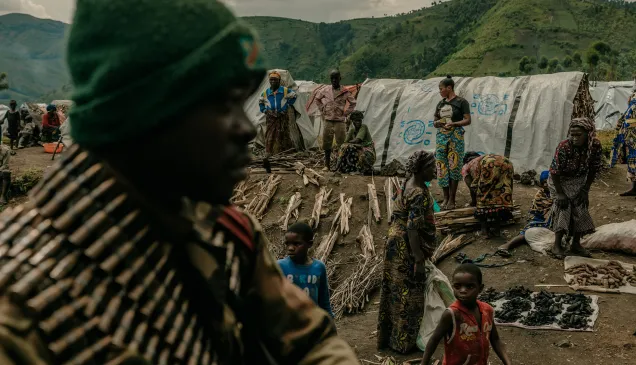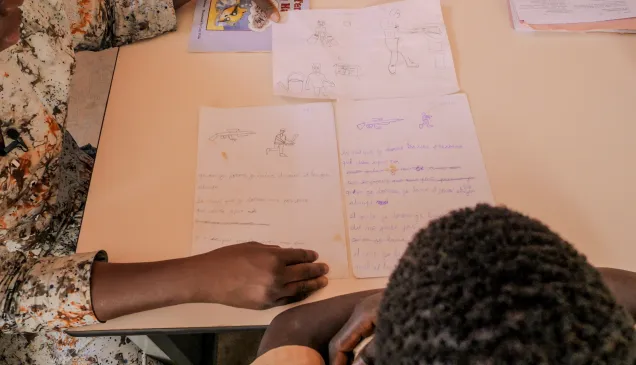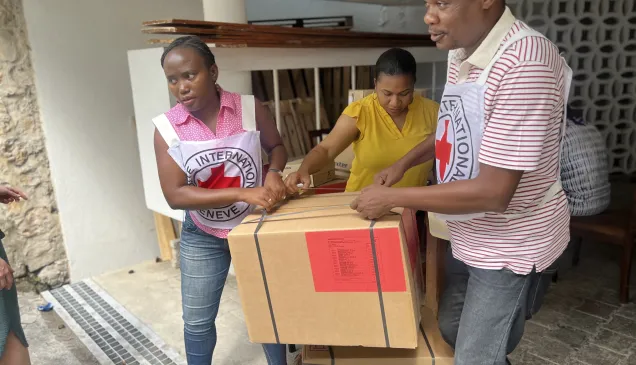Iraq: Escaping unprecedented levels of horror
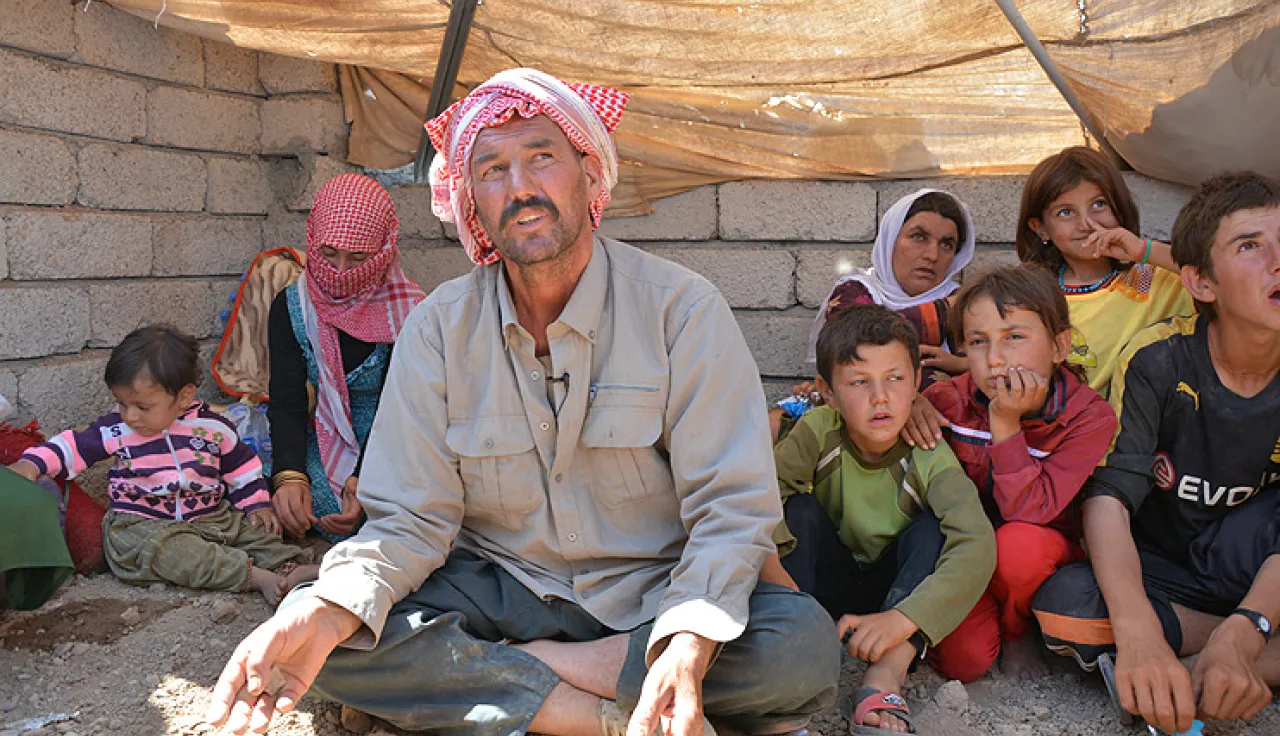
Since the outbreak of fighting in Al-Anbar region last December, the humanitarian situation in west and north Iraq has become extremely bad, particularly for displaced people. Minorities in particular have suffered additional displacement in Ninawa, particularly in Sinjar, and tens of thousands of people have flooded into the cities of Dohuk, Khanik and Sharia.
Horrific stories of ill-treatment, death and fear are emerging. Many thousands have run for their lives, seeking protection on Sinjar Mountain, remaining there without food and with little water for more than a week. The only way they could reach safety was through Syria to the Iraqi region of Kurdistan. Many have found shelter with families and friends while countless others have sheltered in schools, churches, other public places, empty unfinished buildings and even under bridges. The following are some of their heart-rending stories.

Home for this displaced family is an unfinished warehouse in the city of Khanik. With so many families coming to the warehouse, late-comers could only find shelter under rough and ready tents next to unfinished walls, using iron rods to erect a makeshift shade to escape the blazing sun and daytime temperatures that have soared above 50 degrees Celsius. Many of the families that left Sinjar Mountain said they crossed into Syria with the help of Syrian and Turkish Kurdish fighters before crossing again into the safety of Iraqi Kurdistan and then on to Khanik.

This family found shelter in a warehouse where the ICRC is distributing assistance to displaced people. All their earthly belongings can be seen in this picture – they lost everything while fleeing fighting in their village. This is their home for now: no windows, no doors, no bathrooms, nothing except a crib for their baby. Loss, sadness and doubts can be seen in the tired and confused looks in their eyes.

Escaping fighting in their towns and villages, hundreds of thousands of displaced people, with various religious and ethnic backgrounds, have fled to safer locations, flooding schools, public facilities, buildings under construction, and even public gardens in the city of Dohuk and other cities and towns in the Iraqi Kurdistan Region. These Yezidi families could only find shelter under a highway underpass in Dohuk.

This woman and her family fled from their village in Sinjar district to Sinjar Mountain where they stayed for eight desperate days. “After leaving the mountain, we reached Dohuk via Syria with help from Syrian and Turkish Kurdish fighters,” she said. They eventually found shelter and safety under a bridge. The local community brought them food, drinks and other necessities. One of her daughters lost her husband and four children in the chaos.

“We escaped Sinjar town to the mountain in our car," said the woman’s son. "Half way on the road our car broke down. My father, who is 70, told us to keep walking to the mountain. He stayed in the car with three children. One is only three. Later we were told by another group of people who also climbed the mountain that our father and the three children were abducted by an armed group."
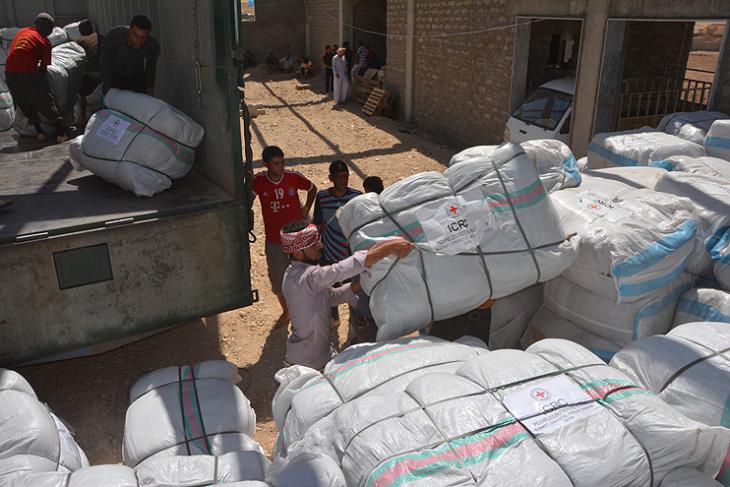
Workers from a displaced community unload blankets, part of the essential items the ICRC is distributing through the community leaders to displaced people who have found shelter in schools and other public places, or with families in the city of Khanik. The workers are paid through an ICRC cash-for-work programme, helping IDPs to meet their everyday needs. Fleeing conflict zones, many people were unable to carry anything with them. The ICRC is providing food and relief items such as tents, blankets, hygiene kits, tarpaulins, kitchen sets and other essentials, helping IDPs to retain their dignity during a very difficult time in their lives.

The city of Khanik, population 60,000, has received nearly 90,000 displaced people, mostly Yezidis from Sinjar district. In coordination with city authorities and community leaders, the ICRC began distributing food and other basic relief materials to thousands of people on 12 August 2014. Daily trucking of clean drinking water began the next day to about 65,000 people. Here, trucks carrying food and other relief items pull into a newly constructed but unfinished warehouse, where many families have taken shelter.

As ICRC trucks carrying supplies arrive, displaced people wait and watch knowing that relief will soon reach them. Many shared horror stories about their escape to the relative safety of Sinjar Mountain.

